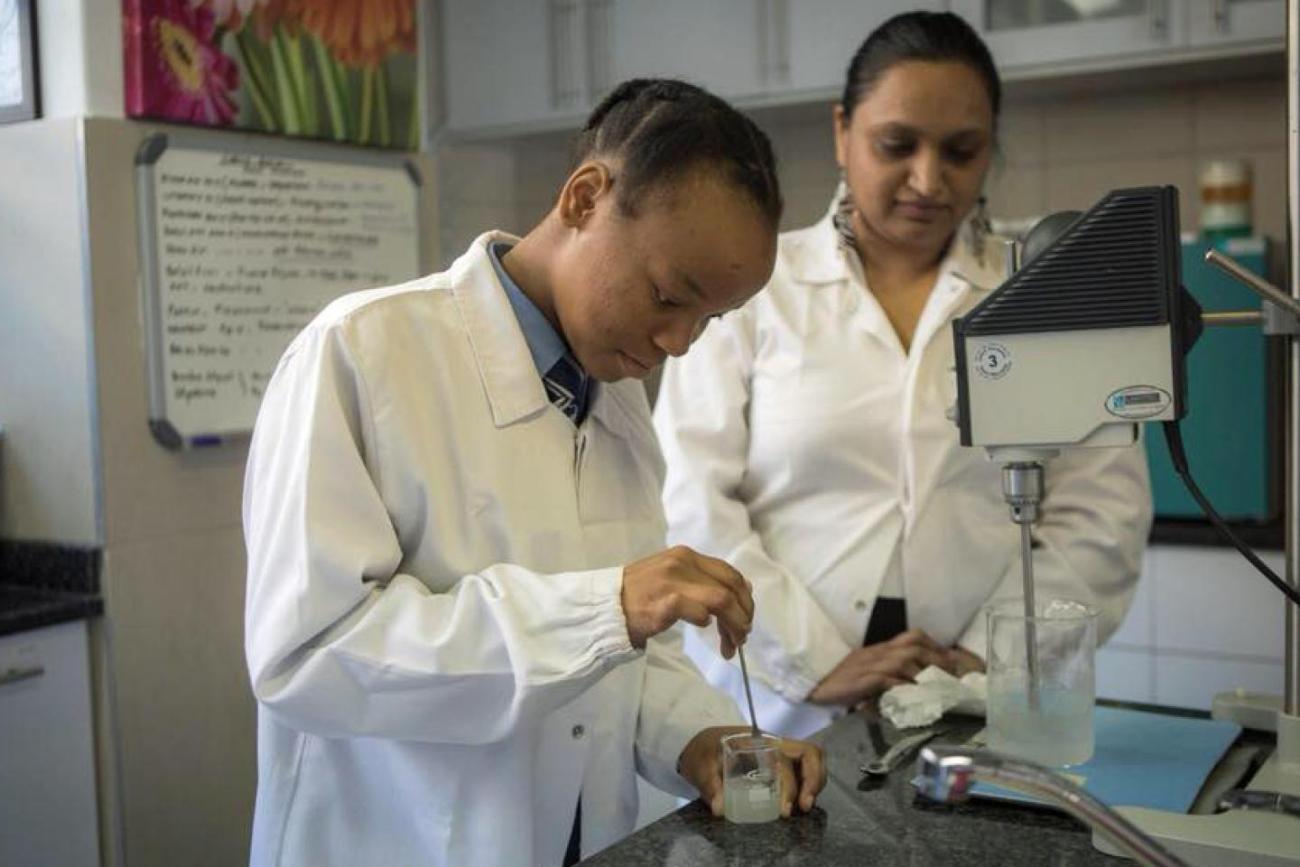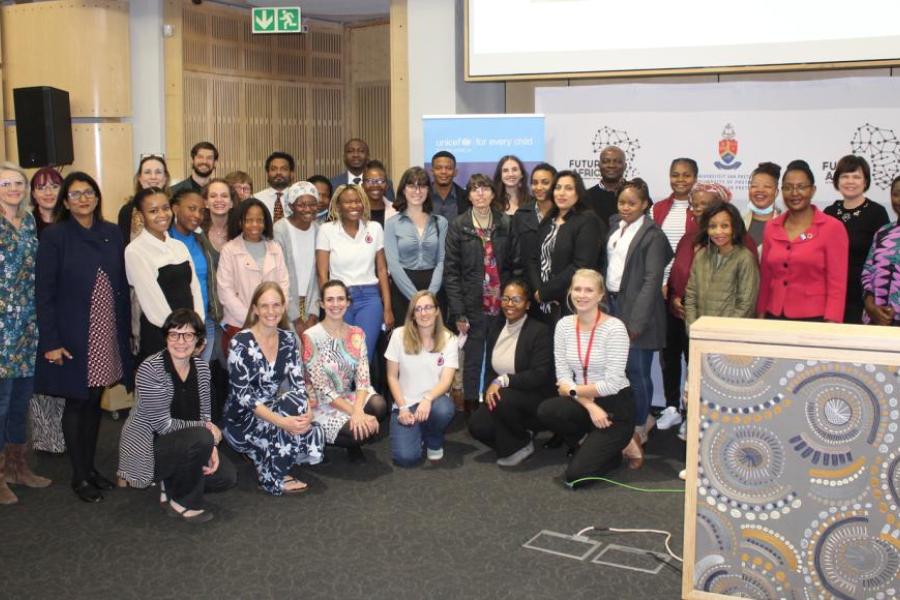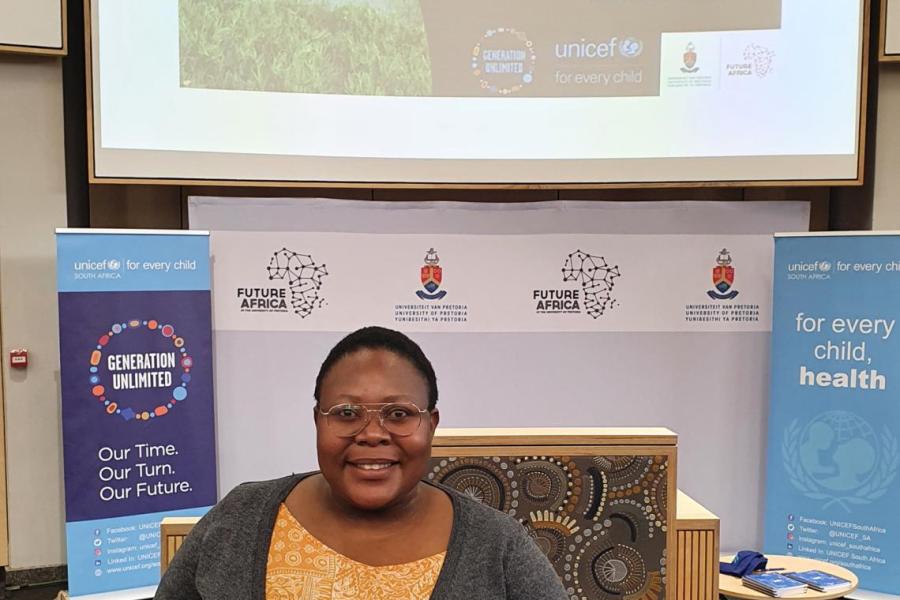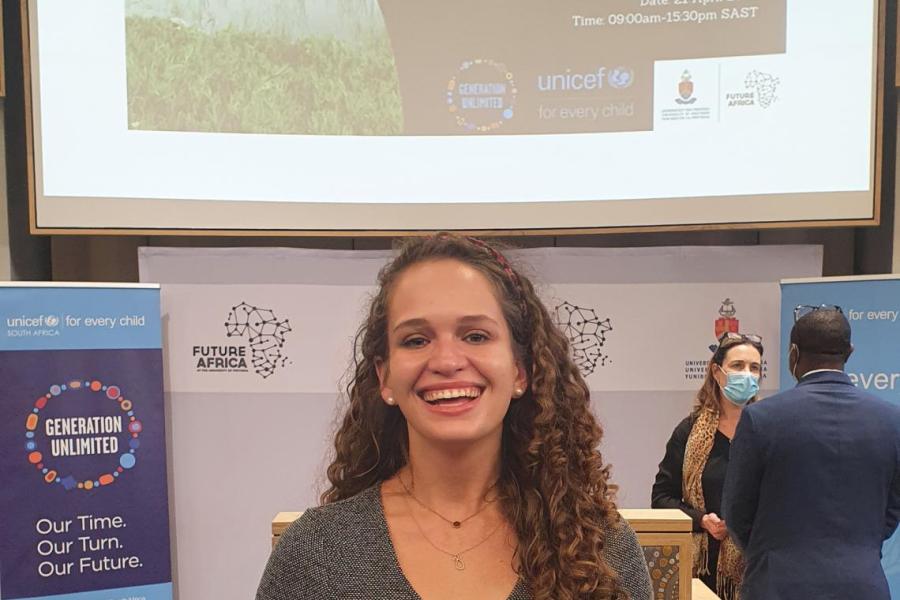Helping young scientists realise their vision and reach their potential

UNICEF's Generation Unlimited and Future Africa Institute promote youth mentorship and skills development through Youth Empowerment & Health/Economic programme
South Africa’s young, bright, resourceful scientists shared their specialized projects in a range of disciplines at the Future Africa Transdisciplinary Symposium, hosted by the University of Pretoria and UNICEF South Africa.
They are part of the Youth Empowerment and Health/Economic (YEaH) programme which is designed to provide funding support for projects that promote transdisciplinary research which responds to the impacts of COVID-19 and beyond.
A collaboration between UNICEF, Generation Unlimited and the Future Africa Institute at the University of Pretoria, the first phase of the programme aimed to promote youth mentorship and skills development by putting young scientists at the forefront of research and project activities.

Kabelo Kgarosi and Miane Swanepoel are two young scientists who explained their projects and how the funding from UNICEF contributed to their work.
Kabelo, the Faculty Library Manager at the University of Pretoria’s Health Sciences Library, focused on bibliometric analysis of literature related to students’ and lecturers’ experiences during the initial COVID-19 lockdown and the abrupt transition from face-to-face learning to fully online classes.

"If I was never part of the Future Africa-UNICEF project I would have never had the skill to do this type of research because bibliometric analysis is one of the research methods that fall under evidence and thesis research, along with scoping and systematic reviews." Kabelo Kgarosi, Faculty Library Manager, University of Pretoria Health Sciences Library
Miane, a research study assistant and Environmental Health graduate, started a project involving testing the water provided to the Melusi informal settlement in Pretoria. The objective is to detect the occurrence of pharmaceutical chemicals and viral content which could impact the reproductive system.

"This programme allowed me to get to the sites and to build a relationship with the community. That’s what it’s all about – not just being a published author but making an impact and the UNICEF funding really helped me do this." Miane Swanepoel, Research study assistant
Addressing the opening of the symposium, UNICEF South Africa Deputy Representative, Muriel Mafico, noted that “this partnership has not only enabled programming at national level but has allowed us to break the boarder boundaries between the University of Pretoria and other partner universities. It’s also pleasing to engage on trans-disciplinarity. This enables collaborations in knowledge-generation and solving the critical developmental challenges in our communities, thereby ensuring that research guides practice,” Mafico adds.
UNICEF South Africa and Future Africa are looking forward to see what lies in store for all the dynamic, young scientists who are part of the YEaH programme.




